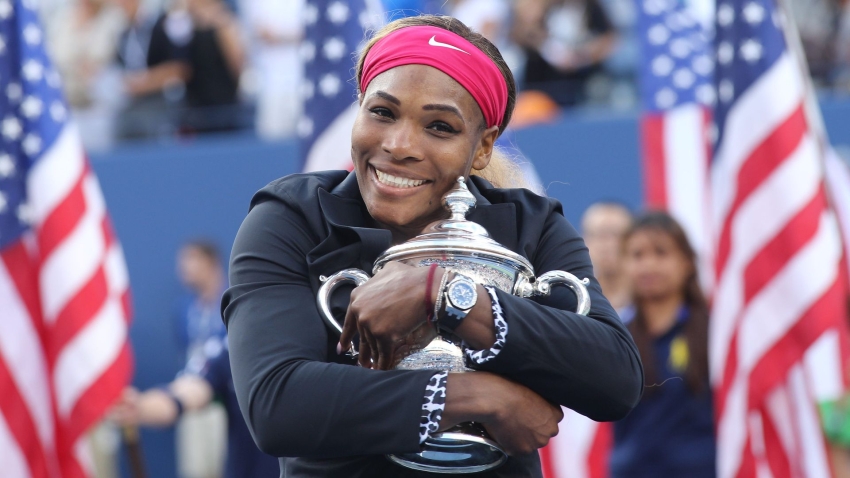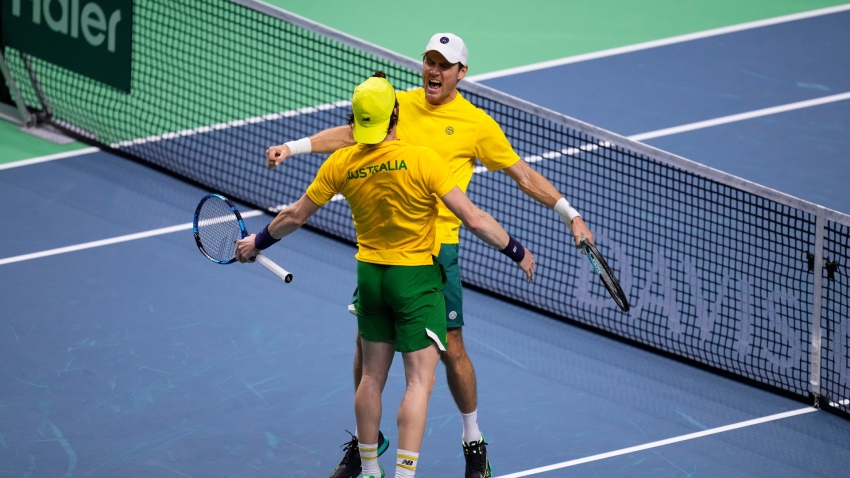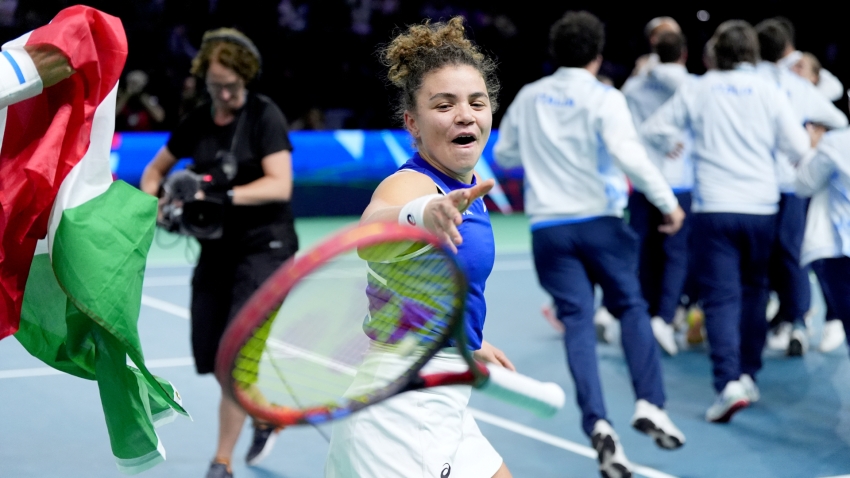Jordan. Ali. Woods. Williams. That's it, that's the company.
Serena Williams is about to draw the curtain on one of the great sporting careers.
A brilliant black sports star excelling on a global stage, she has shifted and shaped opinions over the past 25 years.
Her life has been touched by tragedy as well as great joy, and she has just about lived to tell the tale.
As she prepares for her final US Open, Stats Perform looks back at the obstacles that have been put in front of the 23-time grand slam champion.
Racism since her early days
After learning the game in Compton, Williams and sister Venus endured plenty of outrageous treatment before a notorious incident in 2001 at Indian Wells.
Russian Elena Dementieva reacted to a quarter-final defeat to Venus by saying the semi-final between the sisters would be determined by their father, Richard. That baseless allegation of manipulation was followed by an injured Venus withdrawing from the match against Serena shortly before its start time.
Serena met Kim Clijsters in the final, and there were grim jeers for Venus and Richard when both took their grandstand seats. They and Serena copped brutal treatment from spectators, with Richard stating he was racially abused.
Serena beat Clijsters but did not play at Indian Wells again until 2015, recalling her memories of 2001 in an article for Time, explaining it had "haunted" the family, particularly her father.
She wrote: "He dedicated his whole life to prepping us for this incredible journey, and there he had to sit and watch his daughter being taunted, sparking cold memories of his experiences growing up in the South."
Williams told Sirius XM in February 2021: "I had to make people realise that it's okay to be black and to play tennis."
Sexism never far away
Williams considered causing a scene at Wimbledon in 2011 after being sent out to the distant Court Two to play a second-round match.
It seemed a bizarre move – probably just ignorant – to put the defending women's champion anywhere but Centre or Court One, and while she was reluctant to fully vent her frustration, it was obvious enough.
Seemingly pointing a finger at those in power, Williams said: "They're not going to change."
An angry Williams accused chair umpire Carlos Ramos of sexism in a stormy 2018 US Open final, when she lost to Naomi Osaka.
Williams was warned for receiving coaching on court, which she denied, then penalised a point for racket abuse, before being docked a game after accusing Ramos of being "a thief".
"I'm here fighting for women's rights and for women's equality and for all kinds of stuff," Williams said afterwards. "For me to say 'thief' and for him to take a game, it made me feel like it was a sexist remark. He's never taken a game from a man because they said 'thief'."
Williams was fined $17,000 by tournament chiefs but backed by the WTA, which runs the women's tour outside the slams.
Perilous childbirth
In February 2018, Williams wrote an article for CNN that began with the line: "I almost died after giving birth to my daughter, Olympia."
She wrote of having had "a pretty easy pregnancy" and a routine C-section in August 2017, only for that to be followed by a pulmonary embolism and "a slew of health complications" she was "lucky to have survived", including a large hematoma in her abdomen. Her first six weeks as a mother were spent in bed.
Sister's death
It was September 2003, shortly after Williams underwent knee surgery that forced her out of the US Open, that her sister Yetunde Price was shot and killed in Compton.
Price was 31, with a local gangster sentenced to 15 years for voluntary manslaughter.
Williams addressed court after the April 2006 sentencing of Price's killer, saying she had "wanted to let you know that this was unfair to our family, and our family has always been positive and we always try to help people".
In 2018, Williams was trounced 6-1 6-0 by British player Johanna Konta at the Silicon Valley Classic. She came onto court moments after learning the man who shot her sister dead had been freed from prison, and later told Time: "I couldn't shake it out of my mind."
Walking on broken glass
It's an idiom, and an Annie Lennox song, but walking on broken glass was almost the moment that ended Williams' career.
It could have been a case of unlucky 13 for Williams in July 2010 when within days of winning her 13th grand slam title she suffered a foot injury, and later revealed it had been caused by stepping on glass while leaving a Munich restaurant.
She told USA Today: "I was standing, recovering, thinking I got a little cut and telling my nephew, who was with us, to be careful. Then my practice partner put a cellphone down to the floor so we could see, and there was a huge puddle of blood. I said, 'OMG, I don't think this is good'."
She needed both feet stitching up and underwent surgery to fix a drooping big toe, missing almost a full year on tour. Early in 2011 she underwent treatment for a pulmonary embolism and blood clot in her lungs, after checks were carried out during her recovery.
Chasing Court
Margaret Court has been the figure Williams has chased but looks destined to fall short of, with the Australian set to remain tantalisingly out of reach.
Four final losses for Williams since landing her 23rd major have been increasingly agonising, and it has been clear that her primary motivation for playing on all this time has been to surpass Court.
Court's controversial views on the LGBTQ community have upset many in tennis. Williams, however, just wanted to finish top of the pile, regardless of who was presently leading the way in the grand slam race.
Barring a sporting near-miracle over the US Open fortnight, she will remain second in that race, albeit the grand slam leader in the Open Era – winner of the most titles since the majors embraced professionalism in 1968.































